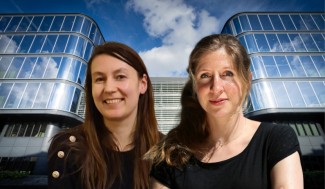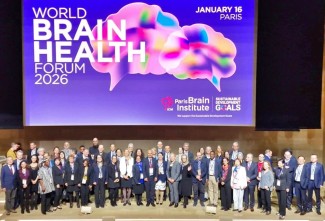The European Research Council (ERC) has just published the list of the winners of the grants it is about to distribute. This year, two researchers from at the Paris Brain Institute have been distinguished.
The ERC funds exploratory research projects, at the frontiers of knowledge, in all fields of science and technology. The only selection criterion is scientific excellence.
Two Paris Brain Institute researchers awarded
Delphine OUDIETTE, INSERM researcher in the team "MOV'IT: MOVEMENT, INVESTIGATIONS, THERAPEUTICS. NORMAL AND ANORMAL MOVEMENT: PHYSIOPATHOLOGY AND EXPERIMENTAL THERAPEUTICS" has obtained the support of the ERC* for her project "CREADOZE" on cognitive and neurophysiological processes characterizing the sleep onset period.
Sleep troubles -insomnia or excessive sleepiness- are a major public health issue. However, the way we fall asleep is poorly understood. Some gradual and dynamic changes are observed during the descent to sleep, on the behavioral (reduced responsiveness to stimuli), subjective (dream-like experiences called hypnagogia) and cognitive level (e.g. decline in executive functions, enhanced creativity).
Using high-density EEG, the project aims to understand how these markers fluctuate in relation to each other and to identify their brain signatures to better characterize the sleep onset period. The ultimate goal is to use neurofeedback to train individuals to control these markers to resist or embrace sleep according to their needs.
Stéphanie BAULAC, research director and head of the "GENETICS AND PHYSIOPATHOLOGY OF EPILEPSY" team, has received ERC support** for her project on the role of cell senescence in Focal Cortical Dysplasia (FCD), malformations of the developing brain leading to drug-resistant epilepsy in children.
In previous work, Stéphanie BAULAC's team has shown that FCD is due to brain somatic mutations.
The objective of the project is to evaluate the potential benefit of senolytics, molecules specifically targeting senescent cells, in experimental models of the pathology. Then, the goal is to propose a precision therapeutic treatment that could also benefit children not eligible for epilepsy surgery.
*Consolidator Grants: support for a researcher working on a scientific problem of excellence, exploratory, at the frontiers of knowledge.
** Proof of Concept Grants: to facilitate the exploration of the commercial and social innovation potential of research results previously supported by the ERC.







